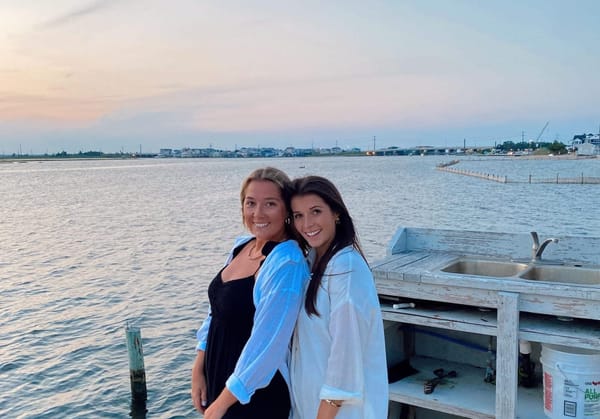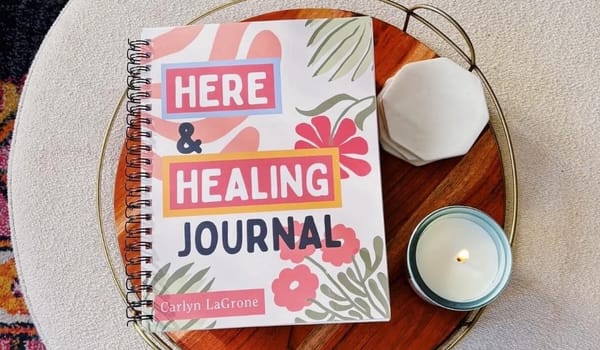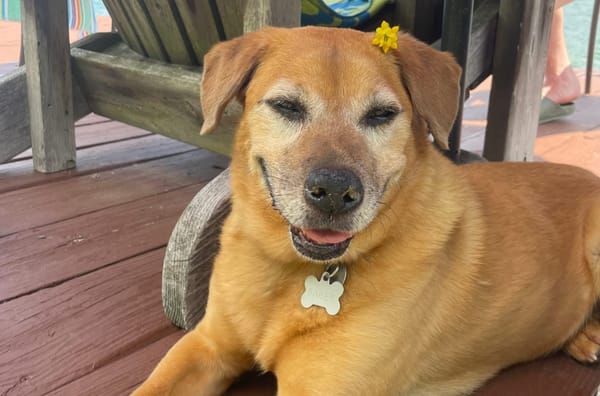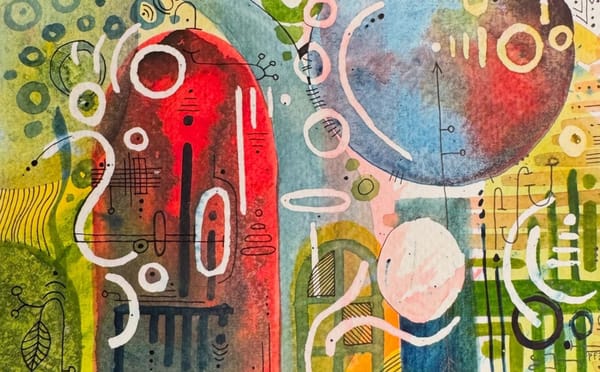Mindy's Story: "My Parents Are Holocaust Survivors."
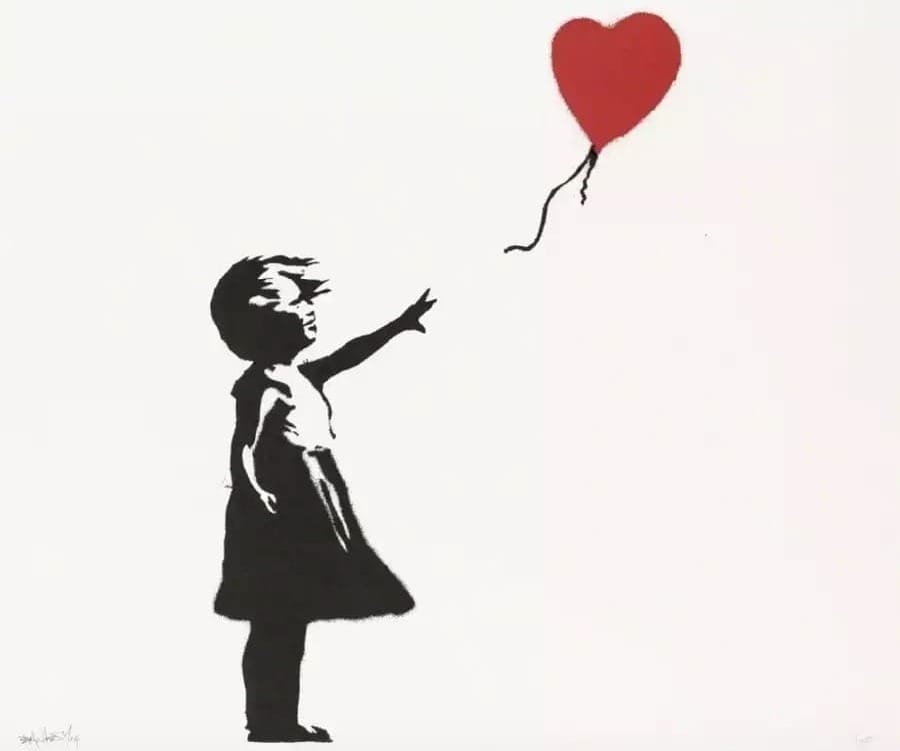
Mindy’s story begins before she was born, shaped by two people who fled for their lives. Her mother and father—who hadn’t yet met—escaped from Europe during the Second World War.
“They fled to Holland, but when Hitler invaded, they caught the last ship out of Amsterdam.” Their destination was Trinidad, the only country in the world that accepted Jewish refugees without a visa.
As the war escalated, the 300 refugees on the island were accused of being Nazi spies. They were rounded up and incarcerated for a year and a half.
Mindy’s parents both managed to get out. Her father lost his own father in Auschwitz, and many relatives were murdered.
After the war, her parents met at the Austria-America Club in Queens—which served as a front for identifying Nazi war criminals who had escaped to the U.S.
They attended college in New York. Her father became an economic advisor, and her mother taught at the United Nations school. Though they built new lives, their trauma remained.
“Their lives were really fraught with tremendous amounts of PTSD and unhappiness,” Mindy says.
In their home, the curtains remained closed, and her parents lived very rigid lives.
Food was carefully rationed. Nothing was wasted. “You never got a full portion of anything,” she says. “Egg shells were crushed and put at the bottom of plants. Rubber bands were kept on doorknobs. Plastic bags were rinsed out and reused. It became very neurotic.”
Even time was tightly controlled. “There was a phone number you could call to get the precision of the time,” Mindy recalls. “Everyone’s watch was set to that exact second.”
Although most aspects of her upbringing were bleak, dinnertime was the only exception.
“What brought them joy was talking over dinner about happy memories from their childhoods before the war,” Mindy says.
In the midst of so much sorrow, storytelling became their shared joy.
Mindy grew up listening to their stories and telling her own. She developed her creative voice and a love for storytelling.
However, she noticed from a young age that her home was different from those of her American friends, who lived carefree lives.
“My parents never felt safe. Ever,” Mindy says.
Even at six years old, Mindy felt separate from her parents. “I realized I wanted to Americanize myself,” she says.
She started working young, bought her own clothes, and eventually put herself through college and graduate school. She entered the field of education and turned to writing and storytelling.
As a child, Mindy wanted to be far from her parents’ devastating history. But after their deaths, she found herself drawn to it. Uncovering their stories brought her closer to them—and to her Jewish identity.
Although they rarely discussed their memories from the Holocaust, Mindy pieced together fragments over time.
At 19, her father was living in Vienna when the Nazis gave him the job of identifying other Jews—names to be handed over for roundup. But instead, he would write the lists, then rush to those homes to warn the families: leave now, you’re going to be taken. “In some ways, he saved them,” Mindy says.
Her father and his family were eventually found, but they banded with others to secure three visas and escape. His own father, however, stayed behind—and was sent to Auschwitz.
As soon as he arrived in America, Mindy’s father enlisted in the U.S. Army, passing as non-Jewish. He was trained as a double agent to spy on Nazis.
“Imagine spying on the people who killed your father,” Mindy said.
At the same time, her mother was just 13, living in an internment camp in Trinidad, surrounded by barbed wire and guard towers.
Her mother had only made it to Trinidad by chance. During a Nazi roundup, Mindy's grandfather was in a line organized in alphabetical order. The Nazis were going down the line, sending people to be killed one by one—until they ran out of paperwork before her family’s last name.
“They sent A to S off to be killed, and there were two people left in the back of the line.” Her grandfather was one of them. Instead of being executed, he was sent to jail.
“My grandfather was a jeweler and a watchmaker. My grandmother came to the prison and bribed the guards to let my grandfather out, and they did.”
The next day, they found passage to Amsterdam by train. Before boarding, her grandfather sewed gold and jewelry into the lining of his trench coat. Her mother and aunt put rings onto every finger and pulled mittens over their hands.
“When the Nazis opened the compartment door, they rifled through their luggage and took everything of value,” Mindy says. “But they never asked my mother and her sister to take off their mittens—and they didn’t check my grandfather’s coat.”
They made it to Holland and sold some of the jewelry to pay for passage to Trinidad.
After the war, the family escaped to America, hidden in the bottom of a banana boat.
Her mother rarely spoke about her time in Trinidad. Last August, Mindy decided to explore the story herself. “There’s hardly any written history about Trinidad’s internment camp. I mean, Trinidad turned the camp into a park, for god’s sake,” she explains.
Her mother’s cousin stayed in Trinidad after the war. “He passed away, and when I looked up his obituary, I found out who wrote it. I reached out to this guy, Nick—and booked a flight to meet him.”
When Mindy arrived, Nick drove her to her cousin’s former home. The house had been gutted; nothing remained except a table built into the foundation.
Resting on the table was an old photo album. She opened it to find a picture of her mother and cousin—and on the next page, there were photos of herself as a little girl.
Mindy asked a construction worker if she could keep the album. He said no—it belonged to the owners.
“As I was leaving, who did I run into? The new owner. And he gives me the photo album.”
“Baschert,” she said in Yiddish. “Meant to be.”
Today, storytelling and writing are second nature for Mindy. “It feels like breathing and drinking water,” she says. She has won eleven storytelling competitions at The Moth. Her stories are funny, offbeat, and honest.
Mindy has spent over two decades in education. She ran Cooking Round the World, a program blending cultural and culinary education to teach children how to cook while learning about different cultures. The program reached 218 schools across California. “I wanted children to embrace difference,” she says.
As an educator and business owner, Mindy never burned out or lost her creative energy. “I was able to see the larger picture—the thousands of children’s lives I changed. I also wanted to set an example for my own kids.”
“I do storytelling because I want to live meaningfully and I feel like the things that happen in my life matter.”
Her resilience is shaped by her parents’ survival.
“I saw how this towed them under,” she says of her parents. “They didn’t act upon their pain, but they had a powerful need to survive.”
“I wanted to rise above. And I think that their survival was predicated on needing to show the world that we are gonna withstand even the Nazis,” she continues. “And they were resilient by surviving—not happily, but they lived.”
“My resilience is more of a joyous resilience. I love life. I live very meaningfully every single day with joy in my heart. I embrace life with both arms. I'm in it with both feet.”

